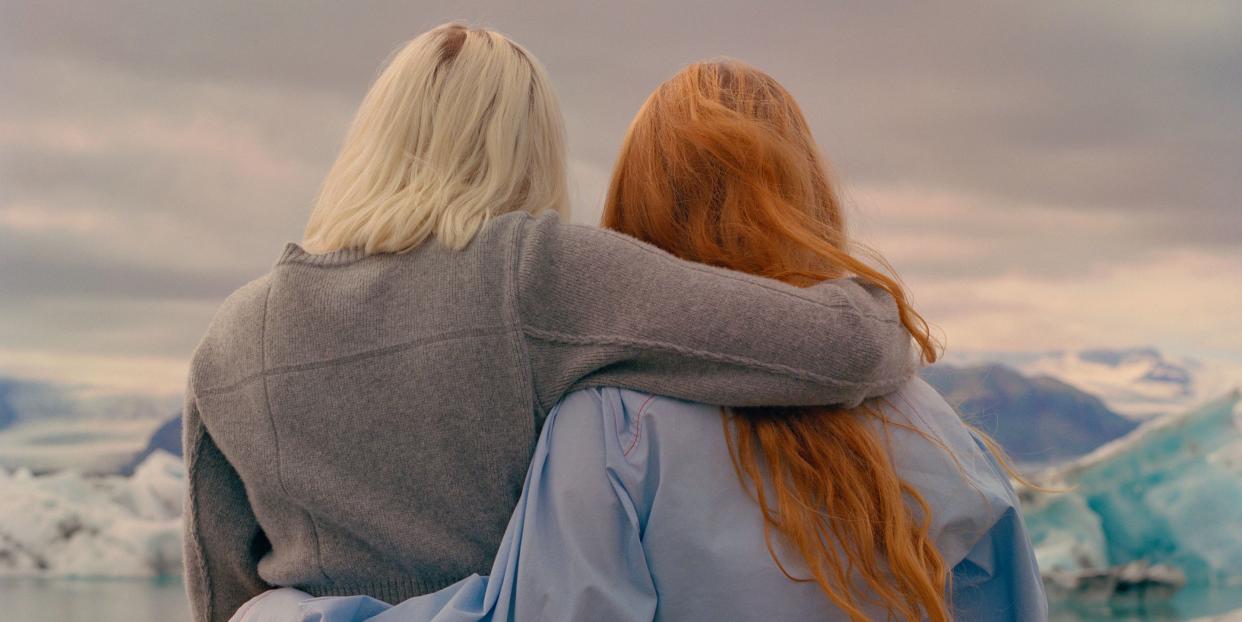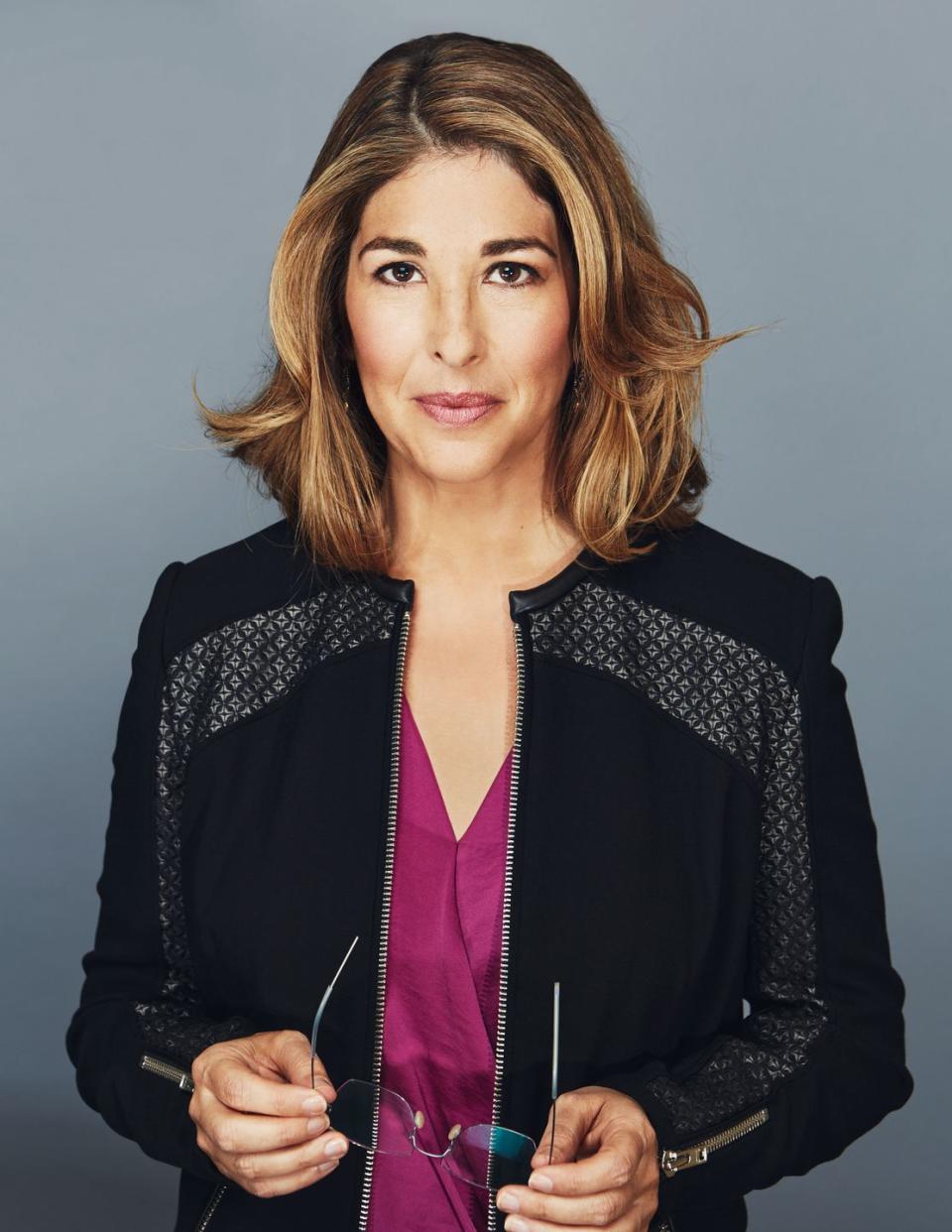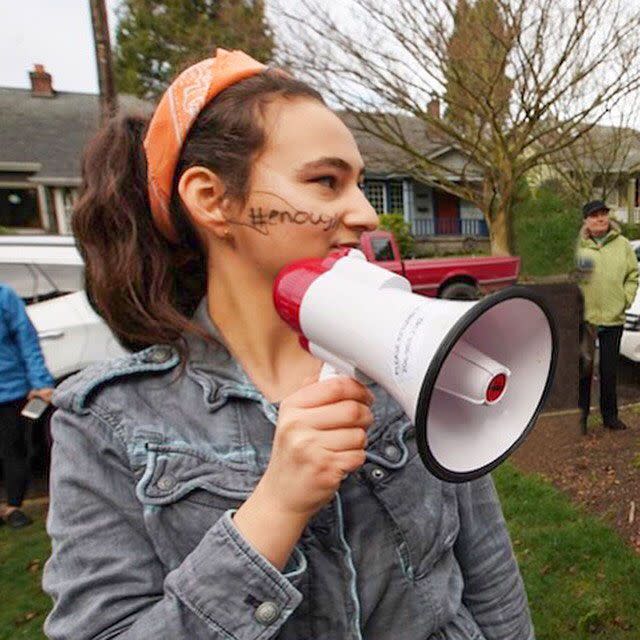If Climate Change Doesn't Kill Me, My Anxiety About It Will

Ever since I could read, my time-honored method of dealing with any kind of uncertainty has been to flood the zone with data. Terrifying-seeming symptom? Hit the CDC website to convince myself it’s probably not an aneurysm in progress. Unfamiliar destination? Learn so much about the terrain that I could double as a local travel guide. But one patch of my anxiety quilt has gone unassuaged by this information-seeking compulsion, and that’s climate change. I’ve probably read more about the topic than anyone who doesn’t need to for her job. And with every article I read, book I devour, or haunting image of an emaciated polar bear or trash-gorged whale I see, I sink deeper into the quicksand of hopelessness.
Then there’s the never-ending soundtrack that is my inner monologue: Am I abetting the decline of my own civilization? Sure, I recycle, I don’t buy throwaway fashion, I call my representatives, but I’m a part of an industry (fashion) known for stoking a demand for more, more, more, even as my own habits tend toward self-abnegation. I’m incalculably lucky that my day-to-day life hasn’t been affected by climate change in the way that so many others have. But the fact that the threat is more abstract only makes the black hole seem more menacing. When will it swallow me, my hypothetical kids, and my even-more-hypothetical grandkids?
And what makes the anxiety worse, of course, is the fact that virtually no one around me wants to talk about it. I’m not friends with any climate-change deniers, but when I bring up the latest 10,000-word article warning us that we have a mere decade left before everything starts melting, the reactions range from blank stares to Debbie Downer jokes to “For the love of God, this is a child’s birthday party!” (Okay, I might be guilty on that last front.)

“Climate repressors” are what Naomi Klein would call these people. Klein, the writer and theorist who burst onto the scene with the manifesto No Logo, has been beating the drum about climate change and the way it’s interlinked with capitalism for many years now. But believe it or not, she’s sympathetic to the repressed among us. “I think there is nothing more terrifying than contemplating the radical deterioration of our only home,” she says. “We’re not a culture that deals with grief very well. We just expect people to suddenly become activists, and we don’t actually give people space to grieve.” Klein experienced that sadness when she saw the Great Barrier Reef in its much-diminished state. “It’s one of the wonders of the world and it’s basically gone, and the grief of that is unbelievable,” she says.“Whether it’s grief in our personal life or grief in our collective life, we actually do need to deal with it. It’s unhealthy not to.”
Klein’s method of dealing with it has been through her writing and activism. She has a new book coming out this fall, On Fire: The (Burning) Case for a Green New Deal, part of which covers her experiences the past few summers living on the West Coast and, as she puts it, “choking on wildfire smoke.” At one point, she says, Americans could think of climate change as a far-off eventuality, but given the recent wildfires and hurricanes, “it’s become a lot less abstract.”
One group who’s never had the luxury of seeing climate change as an abstraction is Gen Z. While I, a millennial, learned nothing about climate change in school (my high school bio teacher never mentioned it, but she did find time to enthuse that alternating hot and cold water in the shower “really opens up your pores!”), for a younger generation, it’s been unavoidable. Look at the Swedish teen-age activist Greta Thunberg, who took Davos’s billionaires to task this January with a stirring speech. Or the young plaintiffs in the Juliana v. United States case, who are suing the government for contributing to global warming. When I talk to Jamie Margolin, the 17-year-old founder of the youth environmental movement Zero Hour, she tells me-using the ultimate teen analogy-that for her, the concept is like Cardi B: “You know when you don’t quite know where you’ve heard of something, but you’ve heard of it? I don’t quite know where I first heard about Cardi B, and that’s kind of how it is with climate change.” It’s been a constant in her life, and she doesn’t have the option of pushing the problem aside for future generations to solve.“I am already living this,” she says. “I already can’t breathe.”

Margolin lives in Seattle, which has been suffused with smog for the past two summers.The air quality on some days became worse than that of notoriously polluted Beijing. Margolin speaks about the Pacific Northwest with reverence. “You take a breath of the air and it smells like wet pine trees, and it’s my favorite scent,” she says. “The air is so crisp it hurts, but in a good way.” After the smog encroached, the world she loved was blotted out. “The sky was gray, even though it was supposed to be a sunny day. You could literally see the particles. There was an air quality warning; you couldn’t leave the house.” In 2017, she had what she calls a“mental breakdown” as a result. “I remember crying for three hours, just paralyzed with fear, with existential dread, like, What is the point of anything if the earth is not even going to be sustained?” Margolin, who has been diagnosed with anxiety and OCD, says that these conditions “amplify how you feel the emotions.”
Becoming an activist has helped her refocus that anxiety into her work with Zero Hour. “My physical and mental health have gotten better, because I’m so busy responding to emails, being on conference calls, organizing marches, and doing interviews that I can’t sit there and think about how the world is ending.” Last year, she and 12 other young people even sued Governor Jay Inslee and the state of Washington over the issue of climate change. (The case was ultimately dismissed.) Talking to Margolin is galvanizing in a way that doesn’t fully shake me from my funk, but it encourages me. If this high schooler can take a governor to court between algebra and PE, surely I can do more. I settle on a personal one-in, one-out policy: For every dystopian story I read, I’ll get involved in a cause, or donate, or do something to keep myself from spiraling. And while it’s tempting to spend a day at the beach, as I recently did, regaling my family with facts from the book I was reading about rising seas, I’ll try to actually enjoy my precious time in nature-while it’s still there to enjoy.
This article originally appeared in the July 2019 issue of ELLE.
('You Might Also Like',)

